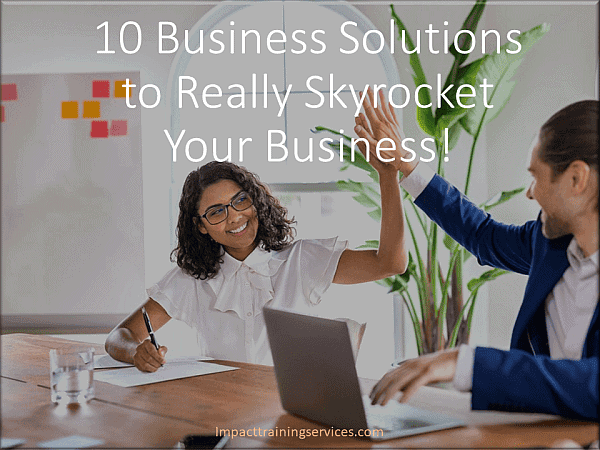
Last updated on February 14th, 2026 at 02:30 am
12 Secret Entrepreneurial Skills You Need for Startup Growth
- Home
- 12 Secret Entrepreneurial Skills You Need for Startup Growth
When I typed “entrepreneurial skills” in good old google on my trusted desktop, I immediately got 674,000,000 hits.
When I reviewed some of these skills on the holy grail of the first page, they were similar from site to site.
They were also mostly regular business skills that you need to run your business. No problem with that.
The problem is, if you start a business and you want to grow it, then if you do “regular”, we all know you will get regular results.
Regular results suggest that at least 20% of startups will fail in the first year, and 50% by year five.

But you didn’t take the belly aching risk you did to be undermined by “regular” anything, did you?
Especially regular entrepreneurial skills?
That certainly would not be in keeping with your strong entrepreneurial spirit! You actually would want to turn failure into success.
That’s why I want to share with you the 12 secret entrepreneurial skills I rely on to get me the guaranteed results I want really fast, whenever I start a business.
What’s more, when you add these 10 smart business solutions and support then with these useful business tips, you have an unbeatable head start.
Definition of (entrepreneurial) skills
Before I go any further, I want to be clear what I mean by a skill.
A skill is:
A learned ability to do something, (eventually) with a high degree of competence, to the extent that when you apply it, you achieve the intended goal or outcome successfully.
Therefore, entrepreneurial skills must be a set or group of skills for growing a startup, which you have mastered so that when you apply them, you can expect a high degree of success.
My entrepreneurial skills were born out of my experience starting:
- a children clothing store
- a candy shop
- a consulting, coaching and training business
- even buying and running a gym
- and being a part of several other businesses among family members
The 12 secret entrepreneurial skills
While these startup or secret entrepreneurial skills are generally in no particular order, in my opinion, the last three serve as the foundation or cornerstones for the other nine.
- Attracting and keeping enough customers
- Negotiating at several levels
- Understanding the business of being in business
- Consistently hitting product/service market fit
- Embracing difficult situations
- Thinking in large sums of money
- Recognising “right” opportunities
- Mixing business with pleasure
- Identifying what you need to know
- Emotional endurance
- Interpersonal skills
- Confidence
1. Attracting and keeping enough customers
This is a skill that you want to develop early because this is how you will keep your business running. I call it a “direct bottom line” skill.
The video below gives you 10 powerful tips on how to do this in just 1.5 minutes.
This skill works for both product and services but It works especially well for services.
The reality is, once you’re clear about your business model, you can negotiate a few contracts to start you off.
This brings me to the next skill…
2. Negotiating at several levels…
For me, negotiating skills help you to get to “yes” in the shortest possible time.
Now don’t misunderstand me, getting to “yes” doesn’t mean crushing the other party. But rather, communicating strongly that you’re the solution to their problem.
And you must be able to do this at all levels – equally with the donors and suppliers and eventually staff.
3. Understanding the business of being in business
Understanding the business of being in business is one of the more desirable but really secret entrepreneurial skills.
This is really about understanding the context in which you will be doing business, very early in the game.
When you develop this skill, you can spot the hard and soft aspects of business that you need to be familiar with.
These include:
- The dynamics of your market(s)
- The tax system
- The banking system
- Who funds your type of business
- Where to get the best deals for products and services
- Best place to find services online
- How to write a business proposal
- What to leave out of your business plan
- And so on…
4. Consistently hitting product/service market fit
Like #1, this is a “direct bottom line” skill.
If you can match your products and or services to your targeted market needs, you will make money. Hands down.
But it all boils down to how clear you are about your business model and how you define your market/niche.
No doubt you know that the popular approach getting “market fit” is to find out what the market wants and seek to satisfy these.
What you don’t know is that there’s a better approach.
That approach is to become very clear on what problem(s) you can solve with your skillset.
Then you find a group of people (your niche or market) who has this problem and solve it for them.
Now you have a great “market fit” and when you rinse and repeat that, you ignite your business success.
5. Embracing difficult situations
In any business, from startup to exit, you will meet difficult and challenging situations.
Whether it’s raising money, having to deal with a difficult customer or writing a business plan, your first inclination is to run and hide.
That used to be mine too.
But I learnt a big lesson from owning and leading several types of business.
You see, that challenging situation that we all want to avoid is often blocking a much needed solution.
So develop yourself as your path the great startup, entrepreneurial skill of embracing difficult situations, and dealing with them as fast as you can.
If you don’t, they remain in place and slow down or derail everything else.
6. Thinking in large sums of money
“What! You need a skill for that!” declared a young “upstart” as he described himself.
“Yes, you do!” I responded, laughing right out loud.
Learning to think in large sums of money is a another one of the critical entrepreneurial skills that anyone who is starting a business must have.
What you’re really developing is a necessary cashflow mindset.
Without this skill, fear will force you into always thinking in small sums instead.
This approach comes from feeling you’re “not enough” and this impacts how you negotiate, for example.
7. Recognizing “right” opportunities
Listen to me right now! Every opportunity that comes your way is not for you!
I know you’ve probably heard many of the popular axioms about opportunities.
For example, I saw one recently that said:
Nothing is more EXPENSIVE than a missed OPPORTUNITY
I immediately did my famous eyeroll and thought the author of that quote might have never been in business.
In business, at any point along the cycle, the axiom should be:
Nothing is more COSTLY than an opportunity you should have MISSED!”
So know your mission and values. Write a mission statement if you have to.
Then use it as a compass to inform your every action, especially your choice of opportunities.
That’s the skill you want.
8. Mixing business with pleasure
I know…you’ve heard it time and time again: Don’t mix business with pleasure!
If we are meant to follow that advice, then why do so many businesspeople take up golf, just to meet the “right” people on the golf course?
So yes! you need to have the skill of mixing business with non-business activities. it is especially valuable when your business is in the startup stage,
Here’s a piece of advice on how you do it…
Learn to be open to business 24/7.
For example, when you drop the children off at school, even standing in a checkout line, half-time at a hockey match, these are all “selling” opportunities for you and your business.
9. Identifying what you need to know
I am forever preaching the need to develop yourself in order to grow your business. However, this does not mean you should embark on any old course of self-development and hope for the best.
The real problem is, we tend to learn about topics we like or what the market is offering. With this approach, learning the right thing is a hit or miss.
What you need, is to be able to identify what you need to know to address the problem you are having right now.
There is little point to going to a seminar on leadership when you need to learn how to file your income tax or how to make your business flexible or adaptable from the outset.
10. Emotional endurance
If you want great examples of emotional endurance, check the attributes of professional athletes. They meet and overcome incredible obstacles almost daily.
Just like a professional athlete, as an entrepreneur, if you’re going to rapidly scale or grow your business, you need that skill as well.
You simply cannot allow a bad day to determine the future of your business.
So what can you do?
Well, you can begin by developing the emotional capability to push through these feelings.
Set your goal or vision clearly in your mind. Acknowledge your fears. Follow the advice in #9 above and get going again…
11. Interpersonal skills
Let’s begin by defining interpersonal skills.
They are a particular group/set of skills which increase the quality of business relationships with peers, customers, clients, suppliers, bankers, investors, to name a few.
As an entrepreneur, having these skills is invaluable to your growth and success.
Apart from those discussed in detail in this post like confidence, you also need some like:
- Communication skills (including public speaking)
- Business etiquette
- Assertiveness skills
- Building trust
- Time management
- Flexibility and adaptability
Ideally, you should start with the one that will give you the most value for where you are in your startup journey.
Then you can work your way through the rest as well as add any that you discover you also need. If you already have most of them, congratulations!
12. Confidence
According to Homaira Kabir, a renowned leadership coach, confidence has two key components:
(1) belonging – having an inner sense of safety when we’re around others; and
(2) mastery – which is trusting our instinctive desires and having the courage to learn and grow.
As an entrepreneur now starting out, this is the #1 entrepreneurial skill you will come to rely on…and yes, it is a skill that fits right into the definition I gave at the beginning of this post.
So to build your confidence, start with your emotional endurance and process your emotions.
Then hone your interpersonal skills. Remain committed to your mission and vision and address your fears.
Approach everything you do with confidence and in time like any muscle that is worked consistently, it will get stronger and you will become better.
Your next “secret entrepreneurial skills” step
So there you have them!
12 (no longer secret) entrepreneurial skills you can use to grow your next startup really fast!
They have worked for me and my family, for my clients and some friends.
So tell me…why won’t they work for you too?
You just have to do one thing now…try them!



